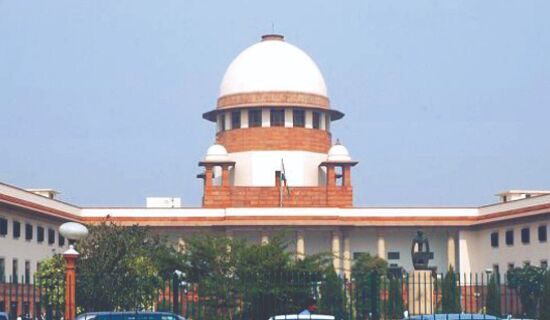Right to control one's identity must remain with the individual, subject to restrictions, says SC

New Delhi: An individual must be in complete control of name and law must enable him or her to retain as well as to exercise such control freely for all times, the Supreme Court on Thursday said.
It said "the right to control one's identity must remain with the individual, subject, of course, to reasonable restrictions".
The top court said that the identity of an individual is one of the most closely guarded areas of the constitutional scheme in India and directed the CBSE to process the requests of students for correction or change, in name as the case may be, in the certificate issued by the board.
It explained by giving an example that a victim of sexual abuse whose identity gets compromised due to lapses by media or an investigative body, despite there being complete legal protection, may consider changing the name to seek rehabilitation in the society in exercise of her right to be forgotten but if the CBSE refuses to change the name, the student would be compelled to live with the scars of the past.
A bench of Justices AM Khanwilkar, B R Gavai and Krishna Murari said that the board and the students are not in an equal position of impact and the balance of convenience would tilt in favour of students.
A Board dealing with maintenance of educational standards cannot arrogate to itself the power to impact the identity of students who enrol with it. The right to control one's identity must remain with the individual, subject, of course, to reasonable restrictions , the bench said.
It said that the students stand to lose more due to inaccuracies in their certificates than the Board whose sole worry is increasing administrative burden and the obligation of Board to take additional administrative burden is no doubt onerous but the propensity of a student losing career opportunities due to inaccurate certificate is unparalleled.
The bench said that the court is compelled to wonder how it would not be a grave and sustained violation of fundamental rights of the student and in such circumstances, the avowed public interest in securing rehabilitation of affected persons would overwhelm the Board's interest in securing administrative efficiency.
In fact, it would be against the human dignity of the student, the protection whereof is the highest duty of all concerned , it said, adding that that identity, therefore, is an amalgam of various internal and external including acquired characteristics of an individual and name can be regarded as one of the foremost indicators of identity.
It said that such control would inevitably include the aspiration of an individual to be recognized by a different name for a just cause and Article 19(1)(a) of the Constitution provides for a guaranteed right to freedom of speech and expression.



